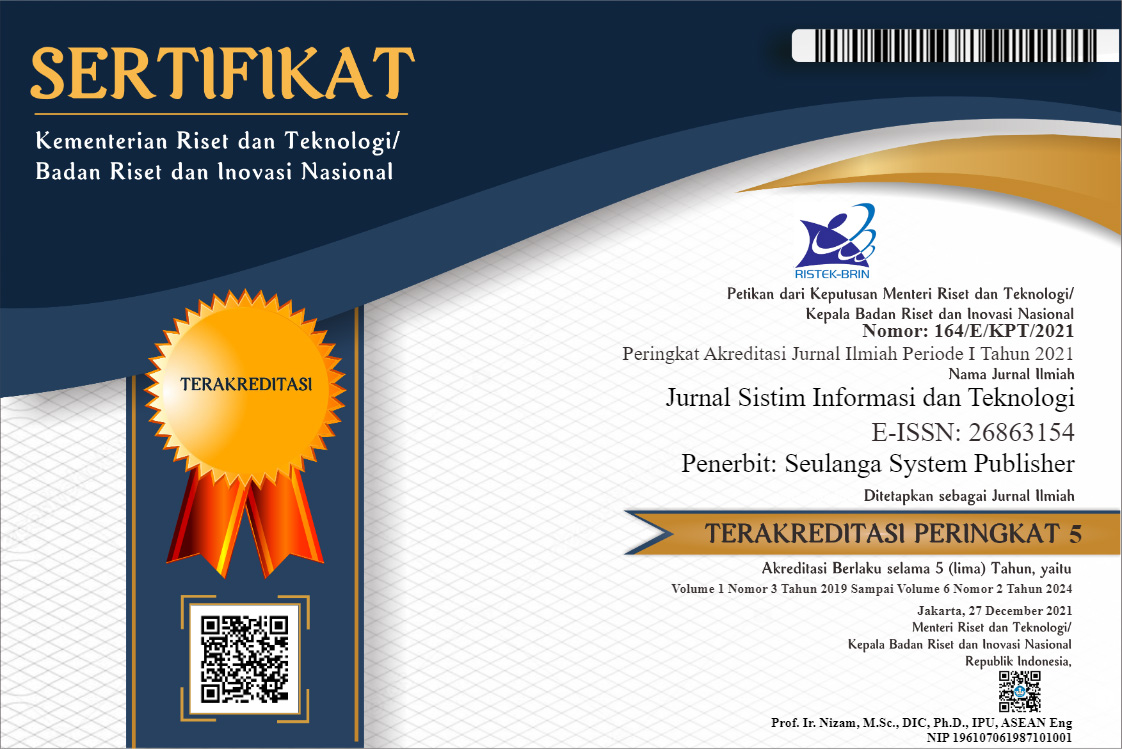Panel Data Analysis to Identify The Relationship Between Human Capital, Social Capital and the Possibility of Community Income Decline in Indonesia Big Cities
DOI:
https://doi.org/10.60083/jsisfotek.v6i2.356Keywords:
Social Capital, Poverty, Family, Human Capital, Panel DataAbstract
This study aims to empirically evaluate the importance of social capital on the likelihood of falling into poverty. The expanded survey employs user-based research, focusing on the household unit of analysis. The results of the analysis seem to confirm the hypothesis that social ties have the potential to reduce poverty. In this context, it is important to differentiate the impact of social capital in the context of survival and mobility. The results of this study tend to support a subsistence effect of social capital rather than a mobility effect. This shows that social capital itself is still not an effective enough instrument to reduce the risk of falling into poverty. However, realizing the positive role of social capital in promoting upward socio-economic mobility requires considering its interaction with family human capital, reinforcing the notion that social capital alone is insufficient to combat social segregation. In this context, coexistence, characterized by enormous diversity in the content and quality of social contacts, appears to play a role in the formation of social capital. Underlying social issues need to be considered. If this is a reality, it is important to establish policies aimed at restoring the construction processes between various social ties to achieve greater sociocultural diversity within each network formed. While different alternative strategies can achieve policy objectives, this research does not address the potential impact of combining educational and spatial integration policies to counteract educational segmentation and urban segregation.
References
Fali, I. M., Philomena, O. N., Ibrahim, Y., & Amos, J. (2020). Risk management committee size, independence, expertise and financial performance of listed insurance firms in Nigeria. International journal of research and innovation in social science (IJRISS), iv, 313-319.
Fali, I., Nyor, T., & Mustapha, O. L. (2020). Financial risk and financial performance of listed insurance companies in Nigeria. European Journal of Business and Management, 12(12), 143-153.
Hill R. P. & Nydick, R. (1992). Using the analitic hierarchy process to structure the supplier selection procedure. International Journal of Purchasing and Materials Management, 28(2), 31-36.
Lamido, I. A., Ibrahim, M. F., & Yahaya, O. A. (2023). Audit committee and financial performance: Evidence from Nigeria. Review of Applied Management and Social Sciences, 6(1), 581-590.
Fali, I. M., Nyor, T., & Mustapha, L. O. (2020). Insurance specific risk and profitability: evidence from Nigerian insurance firms. International Journal of Accounting, Finance and Risk Management, 5(3), 141-148.
Hendy, T., Resdiansyah, R., Johanes, F. A., & Rustono, F. M. (2020). Exploring the role of ICT readiness and information sharing on supply chain performance in coronavirus disruptions. Technol. Rep. Kansai Univ, 62, 2581-2588.
Limei, H., Tannady, H., & Nurprihatin, F. (2018). Meminimumkan Biaya Transportasi pada Capacitated Vehicle Routing Problem dengan Metode Heuristik. SEMRESTEK 2018, 605-613.
Parfitt, J., Barthel, M., & Macnaughton, S. (2010). Food Waste within Food Supply Chains: Quantification and Potential for Change to 2050. Philosophical Transactions of the Royal Society of London B: Biological Sciences, 365(1554), 3065-3081.
Fali, I. M., Alkassim, A., Udoh, E. M., & Yahaya, O. A. (2019). Audit committee and earnings management of listed deposit money banks in Nigeria. Research Journal of Finance and Accounting, 10(16), 115-125.
Philomena, O. N., Ubaka, U. J., & Fali, I. M. (2022). Earnings management and sustainability reporting of listed non-financial firms in Nigeria: Does earnings management drive this report. Studies in economics and international finance, 2(1), 53-65.
CANICE, A., FALI, I. M., & OBOH, J. O. INFORMATION AND COMMUNICATION TECHNOLOGY (ICT) AND PAYROLL PADDING REDUCTION IN NIGERIA CIVIL SERVICE. VOL. ONE, 36.
Ajayi, J. M. A., Fali, I. M., Iganus, R. B., & Simon, U. (2021). Alternative Sources of Internally Generated Revenue and its Usefulness to the Finance and Development of University of Maiduguri, Nigeria. Gusau International Journal of Management and Social Sciences, 4(1), 16-16.
Pujawan, I. N., & Mahendrawati. (2017). Supply Chain Management Edition 3. Yogyakarta: ANDI.
Sharma, M. K., Bhagwat, R., & Sharan, G. (2005). Practice of Performance Measuremnet: Experience from Indian SMEs. Internation Journal of Globalization and Small Business, (2), 183-213.
Fali, I. M., Gbegi, D. O., & Jehu, P. (2023). Moderating Effect of Dividend Policy on the Relationship Between Profitability and Firm Value of Listed Banks in Nigeria. International Journal of Management, Accounting & Economics, 10(11).
Shukla, M., & Jharkharia, S. (2013). Agri-fresh produce supply chain management: a state-of-the-art literature review. International Journal of Operations dan Production Management, 33(2), 114-158.
Fali, I. M., Ibenre, N. A., & Mustapha, L. O. (2019). Leverage and financial performance of islamic banking in Nigeria. The International Journal of Business & Management.
Tannady, H. (2019). Process improvement to reduce waste in the biggest instant noodle manufacturing company in South East Asia. Journal of applied engineering science, 17(2).
Downloads
Published
How to Cite
Issue
Section
License
Copyright (c) 2024 Jurnal Sistim Informasi dan Teknologi

This work is licensed under a Creative Commons Attribution 4.0 International License.









